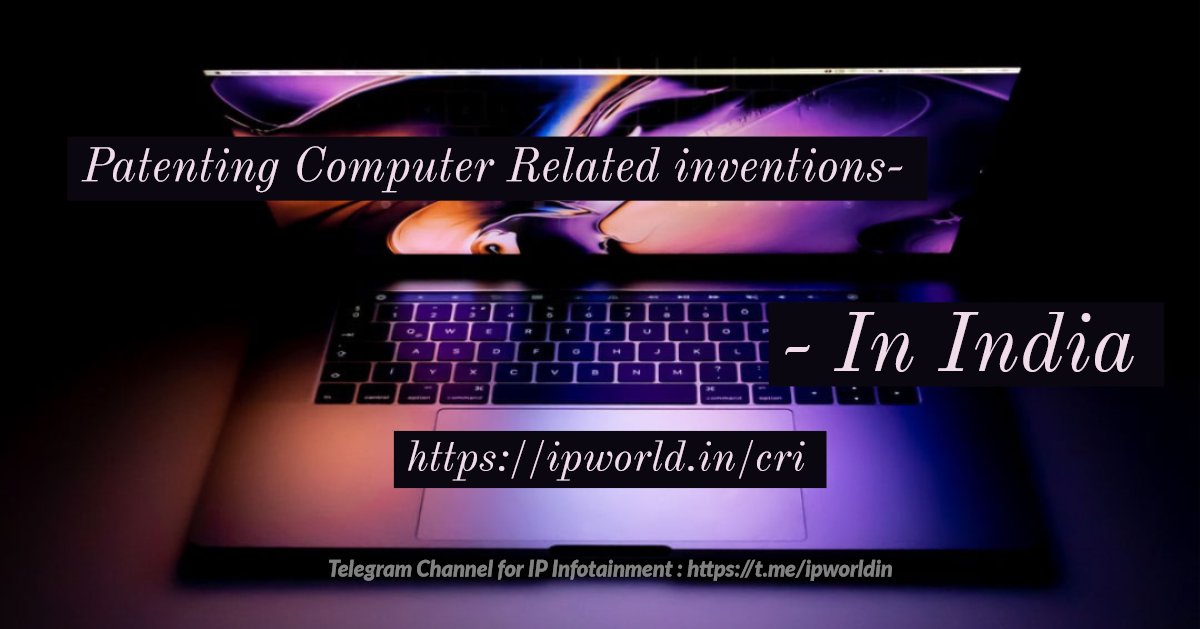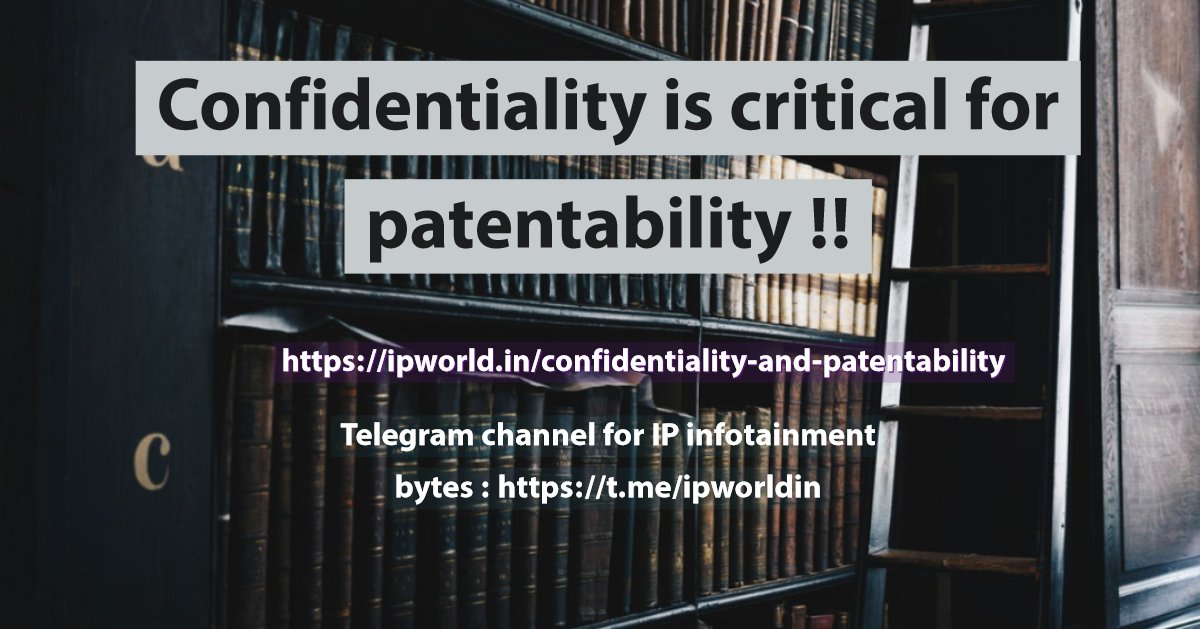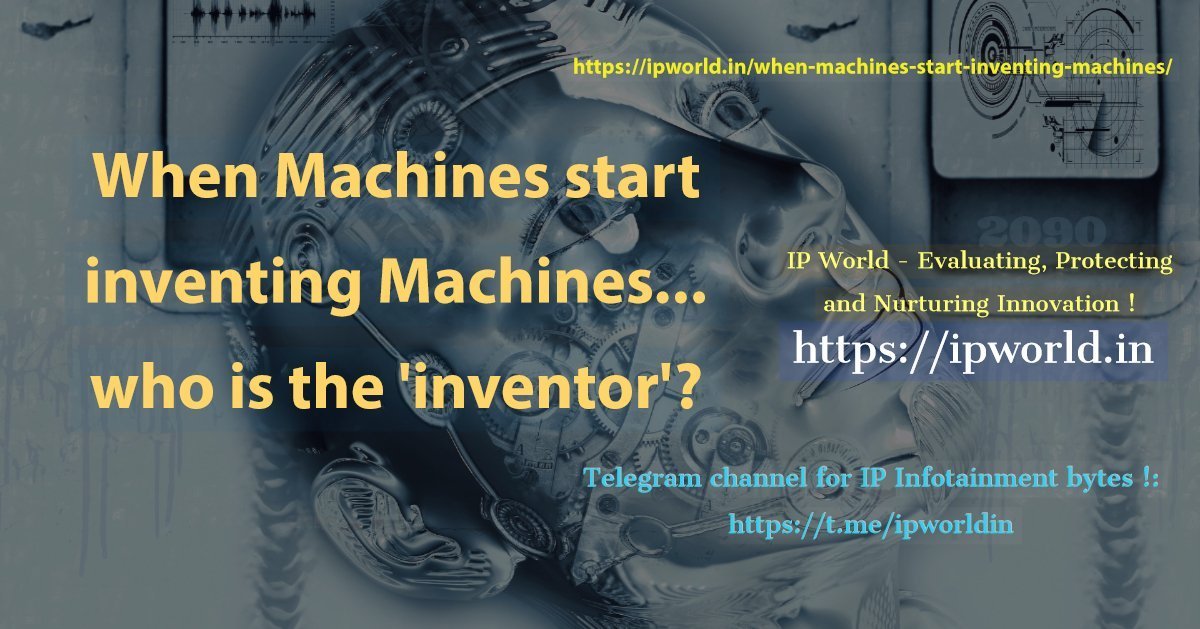Computer Related inventions ( CRIs) occupy a major proportion of applications examined by Patent Offices of various jurisdictions, including India.
For instance, as per data hereunder, patents granted in India in the Computer and Electronics field have shown a strong upward trend, and in 2017-18, stood at third position.

( Source : Annual Report, 2017-18 of the Office of Controller General of Patents, Designs, Trademarks and Geographical Indications )
At the same time, CRIs present unique challenges with respect to patenting. Not only in India but worldwide.
A contributory factor has been that the underlying technologies grow very fast with boundaries that are more and more blurred by the day. Information Technology (IT) now is more comprehensively termed as Information and Communications Technology (ICT) and incorporates aspects such as IoT ( Internet of Things), Blockchain, Machine Learning (ML), Artificial Intelligence (AI) etc. Many inventors- including in the Start-up space in India are trying to innovate using one or more of these aspects as the building blocks of their innovations and filing patent applications for same, hoping to get one/more patents and capitalize on advantages that the patents can grant them.
To take into account developments in this domain in India and other jurisdictions as well as various concerns raised by different stakeholders at different times, the Indian Patent Office (IPO) has been issuing a series of guidelines on how a CRI (computer related invention) may be evaluated while considering grant of patent .
The first such “draft” guidelines were issued by IPO in June 2013. The second in August 2015, which were revised in 2016. Finally, on June 2017 the guidelines were again revised. The June 2017 guidelines are available at :
And it is well worth anyone interested in CRIs and their patentabilty with respect to Indian law to have a look at above. These were applicable “with immediate effect” so presently CRI applications are examined per them by the Indian Patent Office.
In this context, it is interesting to look at a CRI application that was recently ( vide order dated 28th June 2019) denied by the Indian Patent Office.
This pertains to a patent application titled ‘Analyzing a query log for use in managing category-specific electronic content’ for which the Applicant is the social media behemoth – Facebook (FB). You can read more about this event at many places, including, for example, at:
While this may not be the first refusal, either for FB or for many companies and individuals involved in computer related inventions, and of course will not be the last, it was of particular interest to me due primarily the entity involved.
An examination of the prosecution history of this patent application shows that while ‘substantially similar’ applications of the applicant had been granted a patent in US, Australia, China and Japan, the Indian application was refused in end Jun 2019 (filed in 2007). In July 2008, claims of the Indian application were amended. The claims of any patent application serve as the ‘boundary’ of the invention and are considered for examination by the Patent Office before grant of patent.
Essentially, the rejection by the Indian Patent Office states that ‘claims define algorithmic operations and thus are not allowable under sec. 3(k) of the Patents Act. They do not disclose any constructional or structural features. No novel and/or inventive hardware features are defined in the claims. Amendments effected in July 2008 are not allowable u/s 59(1) of the Patents Act. In view of these, the invention as claimed falls within the scope of sec. 3(k) of the Patents Act-1970 (as amended) and is therefore not allowable. The application is, as such, refused a patent u/s 15 of The Patents Act -1970 (as amended).’
Hereunder what the various section cited above actually state.
Section 3(k) states :
The following is not an invention within the meaning of this Act :
(k) a mathematical or business method or a computer programme per se or algorithms;
For more and to discuss please see:
https://ipworld.in/discusspatenting/Thread-Section-3-What-are-not-inventions
Section 59(1) states :
(1) No amendment of an application for a patent or a complete specification or any document relating thereto shall be made except by way of disclaimer, correction or explanation, and no amendment thereof shall be allowed, except for the purpose of incorporation of actual fact, and no amendment of a complete specification shall be allowed, the effect of which would be that the specification as amended would claim or describe matter not in substance disclosed or shown in the specification before the amendment, or that any claim of the specification as amended would not fall wholly within the scope of a claim of the specification before the amendment.
For more and to discuss please see:
and Section 15 states :
Where the Controller is satisfied that the application or any specification or any other document filed in pursuance thereof does not comply with the requirements of this Act or of any rules made thereunder, the Controller may refuse the application or may require the application, specification or the other documents, as the case may be, to be amended to his satisfaction before he proceeds with the application and refuse the application on failure to do so.
For more and to discuss please see:
While above is only a summary of a recent event, I hope it is of interest to inventors in CRI space in India to get a little more understanding of patentability of CRIs. That is not to say that CRIs are not being granted patents in India (see data cited above ) but that the invention and consequent drafting needs to carefully factor in and elaborate upon aspects that will make it patentable in accordance with Indian laws.
All comments, experiences, additional inputs welcome ! Feel free to share and pass on to those you feel could benefit, thanks !
This post was also put at :
https://www.linkedin.com/pulse/patenting-computer-related-inventions-india-hardeep-sodhi
PS : For those interested in details:
Application US 11/171,506
Indian Patent Application No. : 228/DELNP/2007
Claiming priority to US Provisional Application 60/584,137 filed July 1, 2004
PCT National Phase Application PCT/US05/23616
US Application : US 11/171,506
US granted patent :
https://patents.google.com/patent/US7379949B2/
Please see the page as under to contact us regarding this Website as well as for any of your Intellectual Property related queries such as pertaining to Patents, Trademarks, Copyrights, Industrial Designs etc . Thank you.
https://ipworld.in/contact-me/


